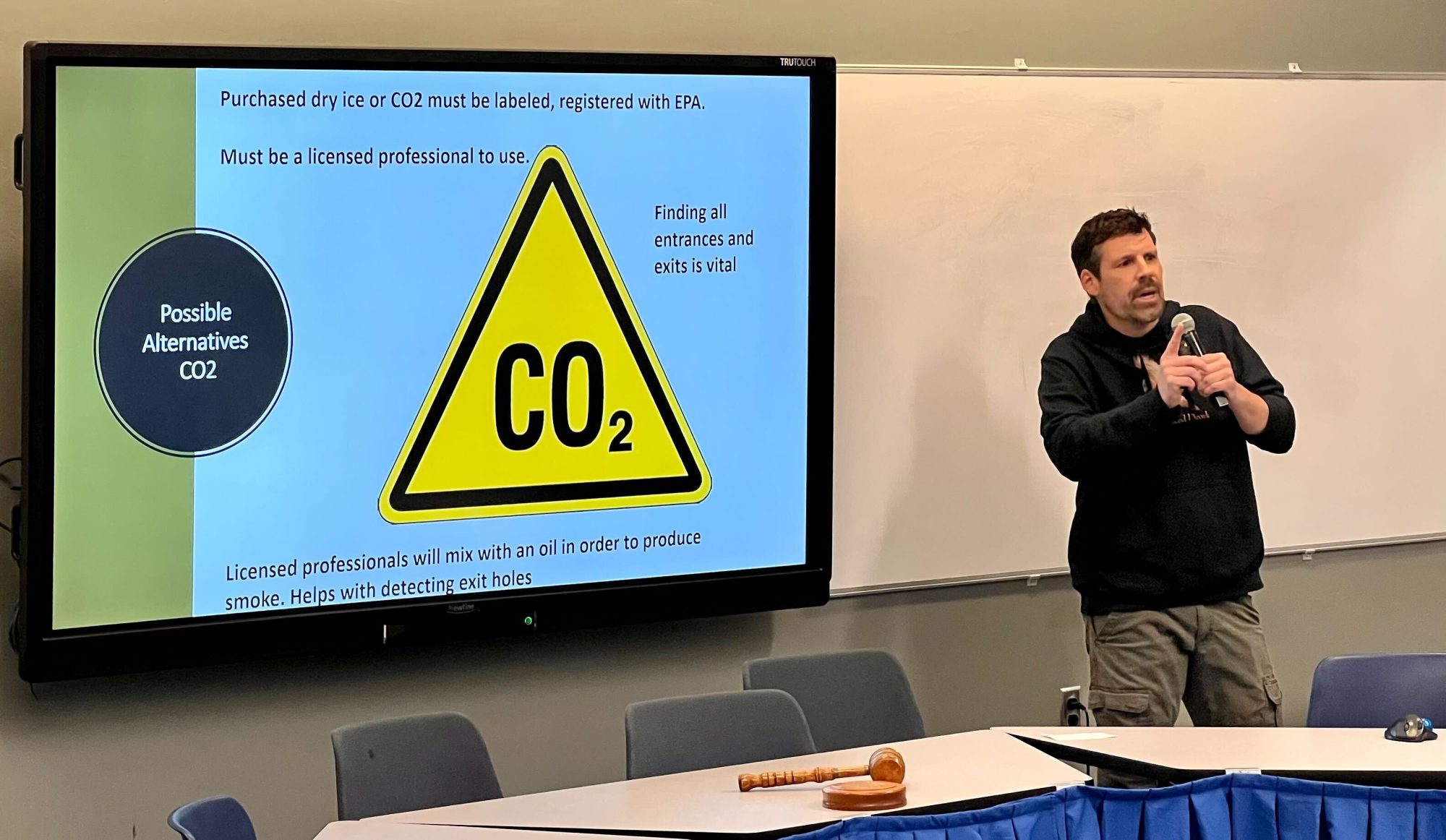SWAMPSCOTT — The Swampscott Conservancy and the town hosted a discussion on rodenticides and how they affect wildlife with wildlife rehabilitator Dan Proulx and State Reps. Jenny Armini (D-Marblehead) and Jim Hawkins (D-Attleboro) Tuesday.
The topic has come to light in recent weeks after the death of a bald eagle due to ingestion of a rodenticide in Arlington.
“It’s unbelievable that our national bird is dying,” Proulx said.
Rodenticides are more commonly known as rat poison. When this poison is used, other wildlife ingests it in addition to rats. Also, when a rat ingests the poison and the animal is not disposed of, Proulx said a predator will ingest the rat and and then die from the poison as well.
“If there’s a dead rat, don’t ignore it. Get in your car, go get it triple-bagged, and throw it away. Because an animal will come along and eat it,” Proulx said.
Recently in Marblehead, a bird that had eggs died due to rodenticide. It was discovered that the bird had ingested the most lethal type of poison, Proulx said.
Rats, Proulx said, are very smart, adapt easily, and can evade traps. They reproduce rapidly as well, which can cause their populations to grow out of control. He added that rats also carry a number of diseases.
“There is a need to keep control of these guys,” Proulx said.
There are other ways to do this instead of using rodenticides, he said.
Snap traps are what Proulx believes to be the best way to eliminate rats.
Other animals can be hurt by the snap traps, so he recommends only using them indoors if you have no pets, or in places outdoors that other animals can’t reach.
“It works really well. Again, I do love wildlife, [but] there are things that you have to do,” Proulx said. “But with these, you have got to make sure you just don’t put them out in your yard.”
He also recommended taking away food and water sources from yards, using cayenne pepper or paprika around trash and compost bins, not using bird feeders, and not leaving piles of brush or wood in yards.
There are currently two bills proposed at the state level, in both the House of Representatives and Senate, regarding the use of pesticides. Armini is co-sponsoring the bill in the House and invited Hawkins, who is the presenter of the bill, to speak in Swampscott Tuesday evening.
These bills would require pest controllers to record usage of rodenticides electronically. Currently they record the usage on paper, which Hawkins said cannot be tracked.
“It doesn’t cost any money and [the bills] will require a mandatory annual report, and then the mandatory annual report will be publicly available,” Hawkins said.
The reporting would enable research on the usage of rodenticides, he said.
The bills are H.825 and R.487, and Hawkins encouraged people to reach out to their representatives and ask them to co-sponsor them.

